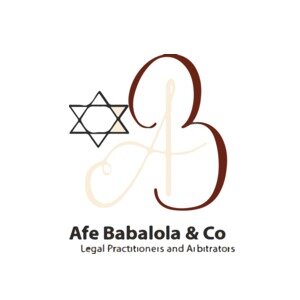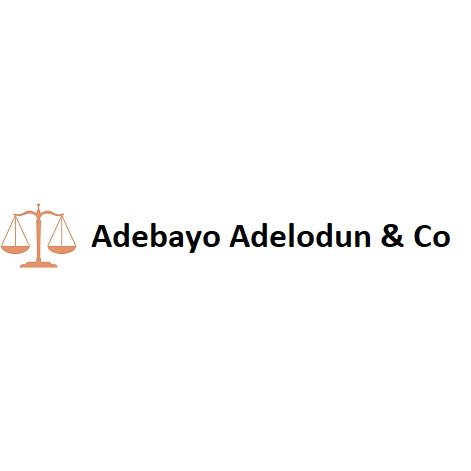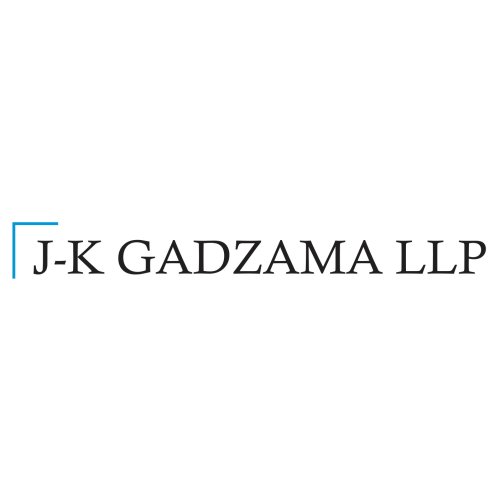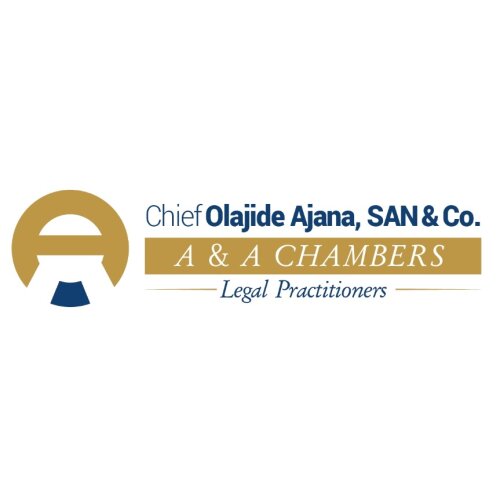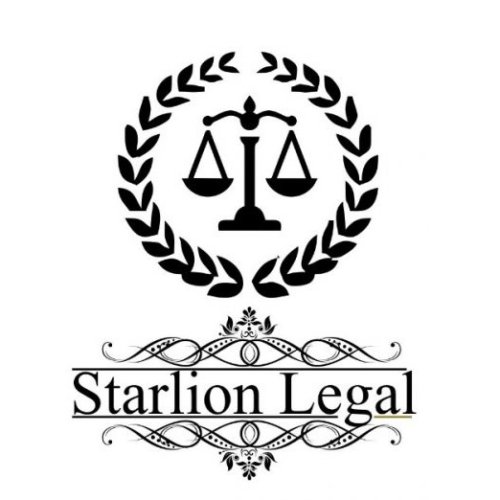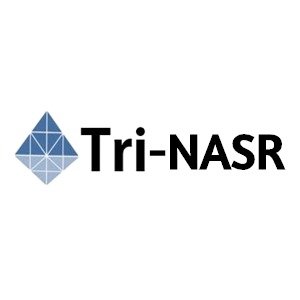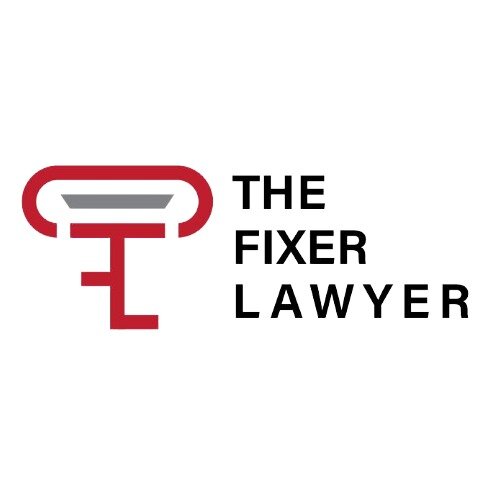Best Restructuring & Insolvency Lawyers in Abuja
Share your needs with us, get contacted by law firms.
Free. Takes 2 min.
List of the best lawyers in Abuja, Nigeria
About Restructuring & Insolvency Law in Abuja, Nigeria
Restructuring and insolvency law in Abuja, Nigeria pertains to the legal framework and procedures involving companies or individuals who are unable to meet their financial obligations. This area of law governs how businesses can reorganize their debts, assets, and corporate structures to remain solvent, or how they can systematically wind up operations when solvency cannot be restored. The capital city, Abuja, hosts several courts, agencies, and professionals with expertise in this field, making it a central hub for insolvency and restructuring proceedings in Nigeria.
Nigeria’s approach to restructuring and insolvency has evolved in recent years, supporting more transparent and flexible frameworks for both creditors and debtors. The enactment of the Companies and Allied Matters Act (CAMA) 2020 and the Nigerian Insolvency Act represents a significant stride in aligning the country’s laws with international standards. The aim is to promote economic stability, safeguard business interests, and ensure fair treatment for all parties involved.
Why You May Need a Lawyer
Restructuring and insolvency issues can be complex, impacting not only legal rights but also the future of your business or personal finances. Common scenarios in which legal help is advisable include:
- Your business is struggling to meet loan repayments or financial obligations
- A creditor has threatened legal action or already commenced debt recovery proceedings
- You wish to restructure your company's debts or renegotiate with creditors
- You need to liquidate a business and want to comply with all legal requirements
- You are a creditor seeking to recover debts or understand your rights in an insolvency scenario
- You are concerned about directors' duties and potential liabilities during financial distress
- You are an individual facing bankruptcy or personal insolvency
Lawyers specializing in restructuring and insolvency can provide strategic advice, represent your interests, and help you navigate the complex legal processes to achieve the best possible outcome.
Local Laws Overview
Several local laws and regulatory frameworks govern restructuring and insolvency matters in Abuja, Nigeria:
- Companies and Allied Matters Act (CAMA) 2020: The CAMA 2020 is the principal legislation regulating insolvency processes, including company voluntary arrangements, administration, and liquidation.
- Bankruptcy Act: Deals primarily with personal insolvency, offering both voluntary and court-ordered bankruptcy proceedings for individuals.
- Companies Winding-Up Rules 2001: Specifies the procedure for winding up companies in Nigeria.
- Security and Exchange Commission (SEC) Guidelines: These may apply for publicly listed companies undergoing restructuring or mergers as part of a rescue package.
- Case Law and Judicial Precedents: Nigerian courts in Abuja interpret and apply insolvency laws, which can influence outcomes based on previous judgments.
Key aspects include the initiation of insolvency proceedings by creditors or debtors, the appointment of insolvency practitioners such as liquidators or receivers, the distribution of assets to creditors, and the impact of insolvency on employment, tax, and regulatory obligations.
Frequently Asked Questions
What is the difference between restructuring and insolvency?
Restructuring refers to the process of reorganizing a company’s financial or operational structure to restore profitability or efficiency, often without entering insolvency. Insolvency is a legal state where an individual or company cannot meet debt obligations as they fall due, sometimes resulting in legal proceedings such as liquidation or bankruptcy.
Who can initiate insolvency proceedings in Abuja, Nigeria?
Insolvency proceedings may be initiated by the debtor company or person, a creditor, or certain regulatory authorities, depending on the circumstances and reasons for insolvency.
What is a company voluntary arrangement?
A company voluntary arrangement (CVA) is a binding agreement between a company and its creditors to repay debts over an agreed period, potentially avoiding liquidation. It requires approval from the majority of creditors and the court.
What happens when a company goes into liquidation?
Liquidation involves winding up a company’s affairs, selling off assets, and distributing proceeds to creditors in a legally determined order of priority. After liquidation, the company ceases to exist as a legal entity.
Are directors personally liable for company debts during insolvency?
Generally, directors are not personally liable for company debts unless they have provided personal guarantees or are found guilty of wrongful trading, fraud, or misconduct.
What is the role of a liquidator or insolvency practitioner?
A liquidator or insolvency practitioner manages the insolvency process, including gathering and selling assets, paying creditors, and complying with legal requirements until the process concludes.
Can an insolvent company continue to operate?
An insolvent company may continue operations during certain restructuring processes, such as administration or a CVA, but in liquidation, the company’s business usually ceases except for activities related to asset disposal.
How long does insolvency or bankruptcy take in Abuja?
The duration varies depending on the complexity of the case, size of the estate, number of creditors, and legal challenges. Some cases are resolved in a few months, while others can take years.
What rights do creditors have in insolvency proceedings?
Creditors have the right to be informed, attend meetings, vote on proposals, receive payments from available assets, and sometimes challenge the conduct of the debtor or insolvency practitioner.
Can individuals file for personal bankruptcy in Abuja?
Yes, individuals can file for bankruptcy under the Bankruptcy Act. This involves court proceedings, asset transfers to a trustee, and legal protections against creditors during the process.
Additional Resources
If you need more information or assistance, consider reaching out to the following resources:
- Corporate Affairs Commission (CAC): The regulatory authority for company registrations, filings, and insolvency procedures.
- Securities and Exchange Commission (SEC) Nigeria: Responsible for publicly listed companies’ restructuring and compliance matters.
- Nigerian Bar Association (NBA) Abuja Branch: A professional body with directories of lawyers specializing in restructuring and insolvency.
- Federal High Court, Abuja: Handles most insolvency and bankruptcy cases in Nigeria’s capital.
- Insolvency Practitioners Association of Nigeria: An organization for certified insolvency practitioners and professionals.
Next Steps
If you require legal assistance regarding restructuring or insolvency in Abuja:
- Gather all relevant documents concerning your debts, assets, contracts, and business structure.
- Consult a qualified lawyer specializing in restructuring and insolvency law to discuss your specific circumstances and options.
- Consider mediation or out-of-court negotiation if appropriate, as this can sometimes lead to faster and less costly resolutions.
- Follow all legal advice and statutory requirements closely to protect your interests and avoid potential liabilities.
- Stay informed about your rights and duties during any legal proceedings.
Taking prompt, informed, and strategic actions can help you achieve the best possible outcome when facing restructuring or insolvency situations in Abuja, Nigeria.
Lawzana helps you find the best lawyers and law firms in Abuja through a curated and pre-screened list of qualified legal professionals. Our platform offers rankings and detailed profiles of attorneys and law firms, allowing you to compare based on practice areas, including Restructuring & Insolvency, experience, and client feedback.
Each profile includes a description of the firm's areas of practice, client reviews, team members and partners, year of establishment, spoken languages, office locations, contact information, social media presence, and any published articles or resources. Most firms on our platform speak English and are experienced in both local and international legal matters.
Get a quote from top-rated law firms in Abuja, Nigeria — quickly, securely, and without unnecessary hassle.
Disclaimer:
The information provided on this page is for general informational purposes only and does not constitute legal advice. While we strive to ensure the accuracy and relevance of the content, legal information may change over time, and interpretations of the law can vary. You should always consult with a qualified legal professional for advice specific to your situation.
We disclaim all liability for actions taken or not taken based on the content of this page. If you believe any information is incorrect or outdated, please contact us, and we will review and update it where appropriate.




